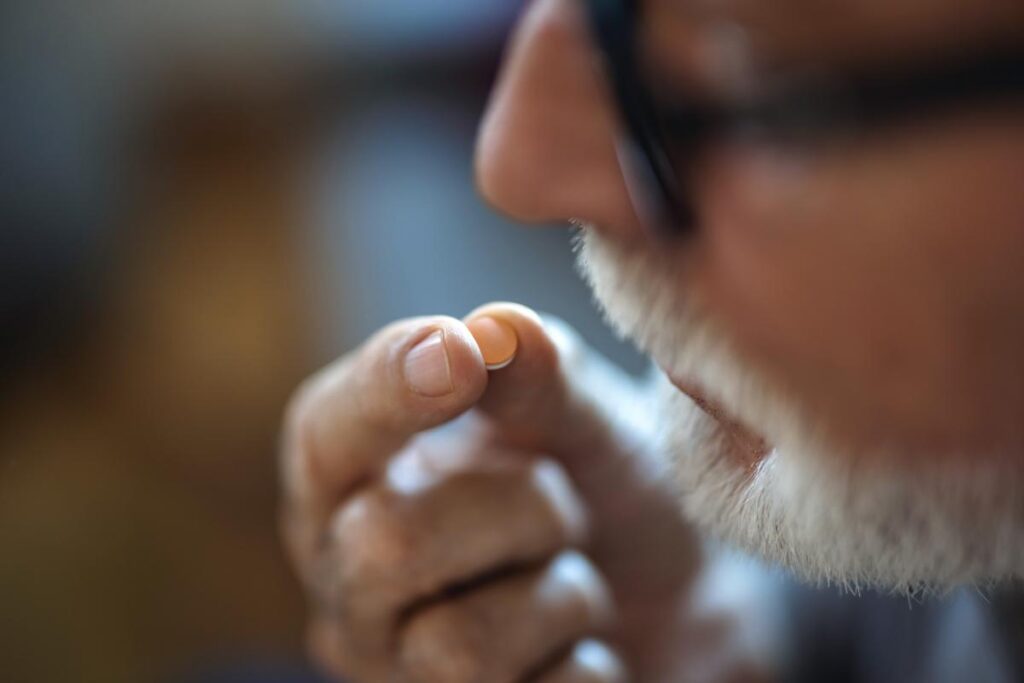Prescription drugs can seem safer than illicit drugs because they are regulated, prescribed, and common. Unfortunately, prescription drug misuse is common. From painkillers like opioids to benzos and Adderall, pill-popping prescription drug use happens daily across the United States and in New Hampshire. Loved ones may hide pill-popping and prescription drug misuse from loved ones. Knowing the signs of prescription addiction makes it easier to help someone seek treatment when necessary. Prescription addiction treatment is the most effective way to stop using prescription drugs and heal.
If someone you love is struggling with drug addiction, know you are not alone. Our team is here to help you. A Better State provides holistic trauma-informed prescription addiction treatment that won’t compromise your family’s schedule. Our daytime and evening partial hospitalization programs (PHPs) and intensive outpatient programs (IOPs) focus on mental health and substance use concerns. Call us now at 781.412.1488 to learn more about the signs of pill-popping prescription drug abuse.
What Does Popping Pills Mean?
People often call prescription drug use “pill-popping” because someone might take multiple pills, take them more often than prescribed or mix them with alcohol. While prescription drugs are made in labs and regulated by the FDA, they can be easily misused. Medications like Adderall, OxyContin, and Xanax are designed to treat real symptoms of underlying issues like trauma, depression, anxiety, and chronic pain. Because of this, someone may become addicted to the relief prescription drugs provide from mental, physical, and emotional stress. Prescription drugs work like bandaids, relieving symptoms without treating underlying issues.
Like many drugs, prescription drugs release dopamine and alter a person’s brain chemistry. This, in part, is why they are addictive. While the brain makes small amounts of dopamine daily, supplemental dopamine can cause someone to crave more. This leads to pill-popping, taking more of a drug than prescribed, or mixing medications. Dopamine craving is called the “dopamine reward effect.” This alone can lead to substance abuse and addiction, especially for those with co-occurring disorders or unprocessed trauma.
Signs of Pill Popping Prescription Drug Abuse
Prescription drug addiction can be hard to spot. Common signs of prescription drug misuse include:
- Mixing medication
- Taking more medication than prescribed
- Seeking multiple prescriptions
- Combining medication with alcohol
- Crushing, snorting, chewing, and injecting medication
- Seeking illicit drug alternatives
Like illicit drugs, prescription drugs can be challenging to stop taking without help. Someone may try to wean off prescription drugs using alcohol or self-harming behaviors. Quitting cold turkey is never a safe approach to recovery.
Learn More About Prescription Drug Abuse Treatment in New Hampshire
It can be hard to realize when it’s time to seek treatment for prescription drug addiction. If your loved one shows signs of popping pills, it’s time to get help. Changes in mood, behavior, and overall health are all signs it’s time to find a recovery program. If your loved one is taking pills other than how they are prescribed, they are engaging in substance use.
If you need help locating a treatment center, approaching your loved one with compassionate concern, or understanding prescription addiction, we can help. At A Better State, we believe in a different kind of addiction recovery. We help clients uncover the root cause of their addictions for long-term holistic recovery. With a focus on trauma-informed treatment for substance abuse, anxiety, depression, and PTSD, we make treatment accessible. Our evidence-based individual, group, and family therapy programs help you and your loved ones recover together.
Call A Better State for Prescription Addiction Treatment Options Today
Is your loved one showing signs of popping pills? We’re here to help. Our team is committed to walking with you on your journey to recovery. We can end drug misuse together and get the care you need for lasting sobriety. Contact us at 781.412.1488 to learn more about our program and start prescription addiction treatment today.


